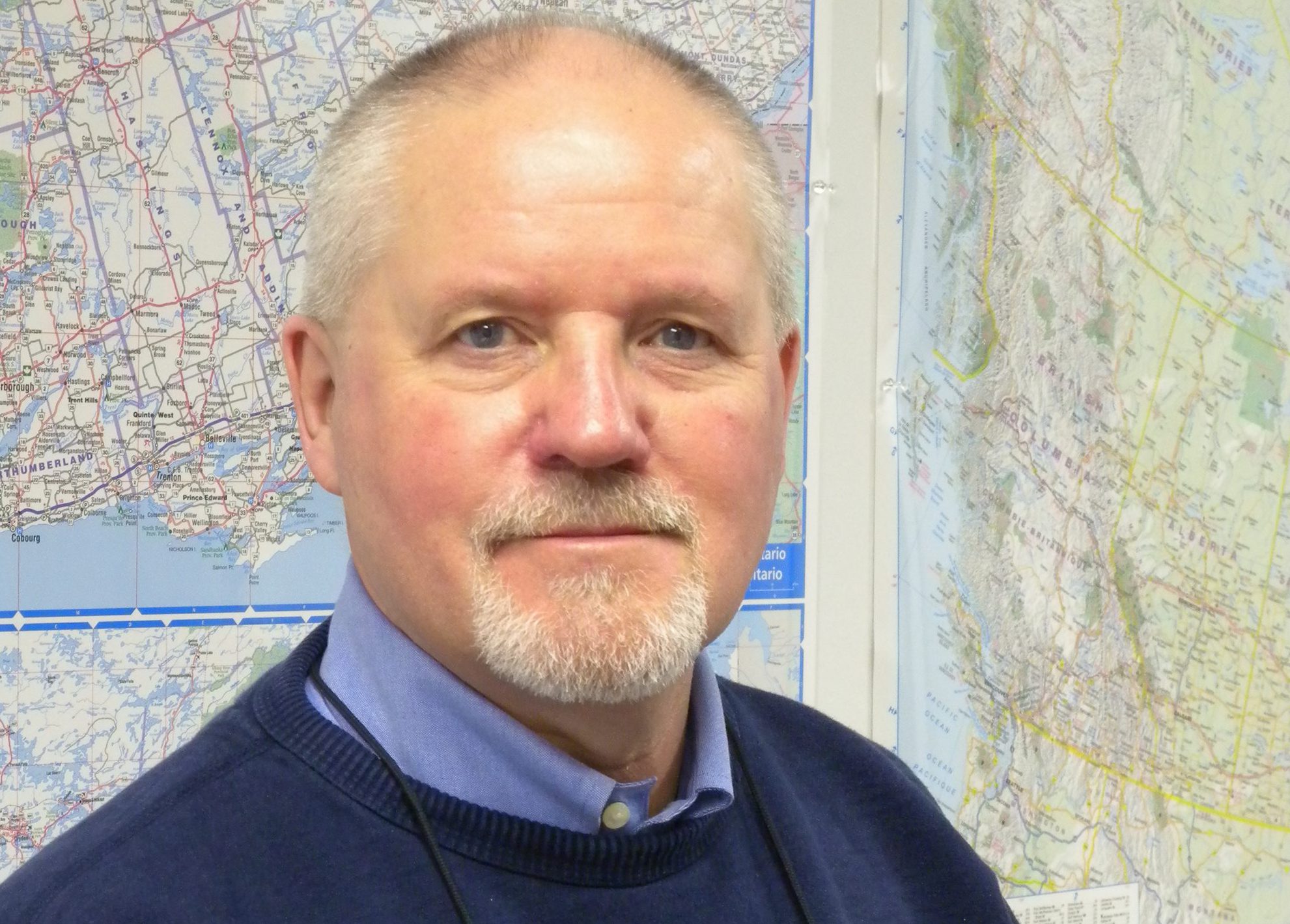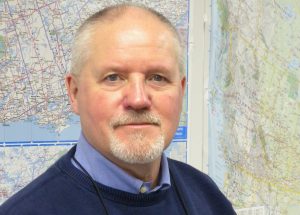
A laser alignment trainer passes along wisdom on skilling up, giving back
A laser alignment trainer joins a trade school advisory board and shares his experience with the next generation.
July 2, 2017 | By Rehana Begg


John Lambert, president, Benchmark PDM, is a laser alignment educator and a business owner who joined an advisory board as a way to give back. Photo: Benchmark PDM.
A robust career in maintenance underpins John Lambert’s determination to show his gratitude for the opportunities in his line of work. The English native started his career abroad when he served an apprenticeship in mechanical maintenance at Fazakerly Engineering in Liverpool, England. After immigrating to Canada in 1973, the journeyman’s transferable skills allowed him to work in the aero industry and in fiberglass manufacturing. He says that his experience allowed him to branch into various roles as a millwright/maintenance mechanic, maintenance foreman and supervisor. And thanks to his proficiency and business savvy, his job functions have morphed into his current roles as an educator and a business owner. “As a training instructor, I implemented Reliability Centered Maintenance (RCM) and Total Quality Management (TQM) into the engineering and maintenance department before starting my own business Benchmark Maintenance Services Inc. in 1994. Today, Lambert’s laser alignment business, Benchmark PDM, is a full-service provider of training for precision balancing and alignment of machinery.
MRO: What is laser alignment and why is it useful?
Lambert: Correct machinery installation is what’s important and a laser alignment system is a tool that simplifies the process.
MRO: Which industries are likely to use your services?
Lambert: Any industry that has rotating machinery. Our biggest end users are the power industry from windmills to nuclear as well as steel and paper mills, mining… It’s a big list.
MRO: How did you build your expertise in laser alignment?
Lambert: Simply by doing it. I started like everyone else, with a straightedge, then on to dial indicators and now use the best laser system in the world.
MRO: Your core business is training. How did this business model evolve?
Lambert: When I started my own business, my intention was to become a service provider. However, I kept being asked to train customers – mechanics/millwrights – and it just grew. We now offer programs from half-day to four days at our training facility in Pickering, Ont. We have trained thousands of tradesmen and women in many industries. I have conducted training in the Arctic Circle, on oil rigs in the Atlantic, underground in mines, and again it’s a long list. We now call it MAAD Training, which is an acronym for measure, analyze, action and documentation. So, if you take our program you can be certified MAAD.
MRO: You recently changed your company name to Benchmark PDM (Precision Driven Maintenance). Why did you make this change?
Lambert: We used to be Benchmark Maintenance Services reflecting the desire to be a service provider. However, because of our strong training programs we became a knowledge-based company and as such we promote a maintenance strategy/philosophy, which is condition-based maintenance. An element of this is precision maintenance. It’s simple; you don’t have to buy anything. All that it is is working to a standard.
MRO: You are on the advisory board at Durham College. Do you teach there?
Lambert: Being on the advisory board is something I enjoy. It’s my way of giving back. I still think of myself as a tradesman and I’m proud of it. The trade has been good to me and I like to help if I can. I don’t teach; they have very good and very qualified instructors at the college. Our role on the board is to advise on industry trends, on new technology being used. On new demands, such as windmill tower maintenance or on growing industries such as elevator service work.
MRO: What can you tell us about the mechanical technician-millwright program at Durham College?
Lambert: Durham College offers one of the best mechanical technician/millwright training programs in Ontario. Actually, they also offer a pre-trade selection program. This is where a young man or woman can spend time in many other trades before choosing the one they like the most.
The industrial Mechanical Technician –Millwright trade program is a two-year program designed to prepare students for apprenticeship in the Mechanical (Maintenance) Technician and Millwright industries. The curriculum is aligned to the Ontario College of Trades training standards for the Industrial Mechanic-Millwright trade. Students receive training equivalent to all three levels (basic, intermediate and advanced) of the in-school portion of a Millwright apprenticeship.
MRO: Are there any success stories among students you’d like to share?
Lambert: To give you some understanding of the quality the college produces, they compete every year at the Ontario Skills Competition, where they have been quite successful. In 2015, Adam Leadbetter, one of the Level 3 apprentices won gold at the provincial competition and silver at the nationals in Saskatoon. These are very prestigious awards and we must say congratulations to Adam. However, because this college is very much a community, everyone shares in his success.
Adam is just one of a large and growing alumni – many of whom come back and support the College. For instance, the chair of the advisory committee is Chris Tozer, a former student. Chris is a technical training instructor with Ontario Power Generation and he is just one of many who return to help support the college. It is a fact that many former students now hold some high positions in our industry and appreciate the start they got at the College.
MRO: What are the chances of finding work in the industry once you’re in the program?
Lambert: Industry seems to be responding to the skills shortage by increased hiring of the college graduates. Enrollment at the college is up, I believe, because of the demand.
When you hire one of these graduates, they are equipped to hit the ground running. This is a very hands-on program the students learn real-world applications. They go on to find employment, not only as mechanical technicians and millwrights, but also as machinists, elevator mechanics, welders, etc.
MRO: There is a skills shortage in Canada. How are programs like these helping to address the shortage and how can businesses benefit?
Lambert: Canada has traditionally gone overseas to import skilled workers. I’m an immigrant myself. And I’m grateful for the opportunity to be here and consider myself Canadian. So, I like the idea of developing homegrown talent. To me, this is a win-win opportunity for all. These college programs give the students a working knowledge of the trades. This knowledge can be put to use immediately by an employer. Not as a full tradesman, but as a willing pair of hands that can help. Because the training program is structured, you end up with a licensed tradesman/woman. Which sure beats the alternative of trying to give someone on the job training, which at best is hit and miss.
And by the way, Durham Collage is celebrating its 50th Anniversary with the slogan, “The start of something amazing.” If you hire a student, for that student it will be “the start of something amazing.”
“Driven by Precision” appears in the June 2017 issue of Machinery and Equipment MRO.
Rehana Begg is the editor of Machinery and Equipment MRO. Reach her at rbegg@annexweb.com.
